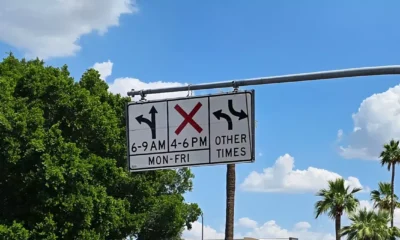abortion
Voters Face Critical Decision on Virtual Lifetime Appointments for AZ Judges

Arizona voters will soon make a pivotal decision regarding the tenure of state judges after the Arizona Supreme Court approved a proposal for the November ballot. This proposal, known as Proposition 137, is also termed “The Judicial Accountability Act of 2024” and has garnered significant attention from various advocacy groups.
Progress Arizona, a progressive organization, attempted to block the ballot measure, claiming it violates constitutional provisions by amending multiple sections of the Arizona Constitution. However, the justices dismissed these arguments, with Chief Justice Ann Scott Timer stating that the proposal’s facets are sufficiently interconnected to meet the constitutional requirement of a single amendment.
Currently, Arizona Supreme Court and appellate judges serve six-year terms, while trial court judges face four-year stints, after which they must seek voter approval for reappointment. Proposition 137 would effectively eliminate these term limits, allowing judges to serve indefinitely unless they face felony charges, bankruptcy, or negative reviews from the Judicial Performance Review Commission.
Additionally, the measure permits the appointment of commission members by legislative majority and allows lawmakers to initiate investigations against judges accused of “malfeasance in office.” Critics argue that these changes further entrench legislative power into the judicial review process, yet the court upheld the measure’s constitutional validity.
Yavapai County Superior Court Judge John Napper had previously ruled against similar concerns, indicating a historical link between retention elections and judicial reviews. He cited that the intertwined nature of these processes justifies their inclusion under the same subject matter.
Proposition 137 has generated considerable controversy. If passed, it would retroactively affect retention elections from this year, potentially nullifying voter decisions even if a majority opts to remove a judge. Among those impacted are Arizona Supreme Court Justices Clint Bolick and Kathryn King, who have faced a targeted campaign aimed at ousting them due to their support for reinstating a historic abortion ban earlier this year.
The fallout from the judges’ controversial rulings on abortion is expected to mobilize voters in November. However, if Proposition 137 is approved, it would protect Bolick and King from any immediate electoral consequences. State Senator Shawnna Bolick, the wife of Clint Bolick, played a role in advancing the proposal despite some legislative pushback.
Both judges have recused themselves from related cases, acknowledging the significant implications of the proposed measure on their retention efforts. The upcoming ballot decision could reshape the judicial landscape in Arizona, with far-reaching effects on the state’s legal framework.


















